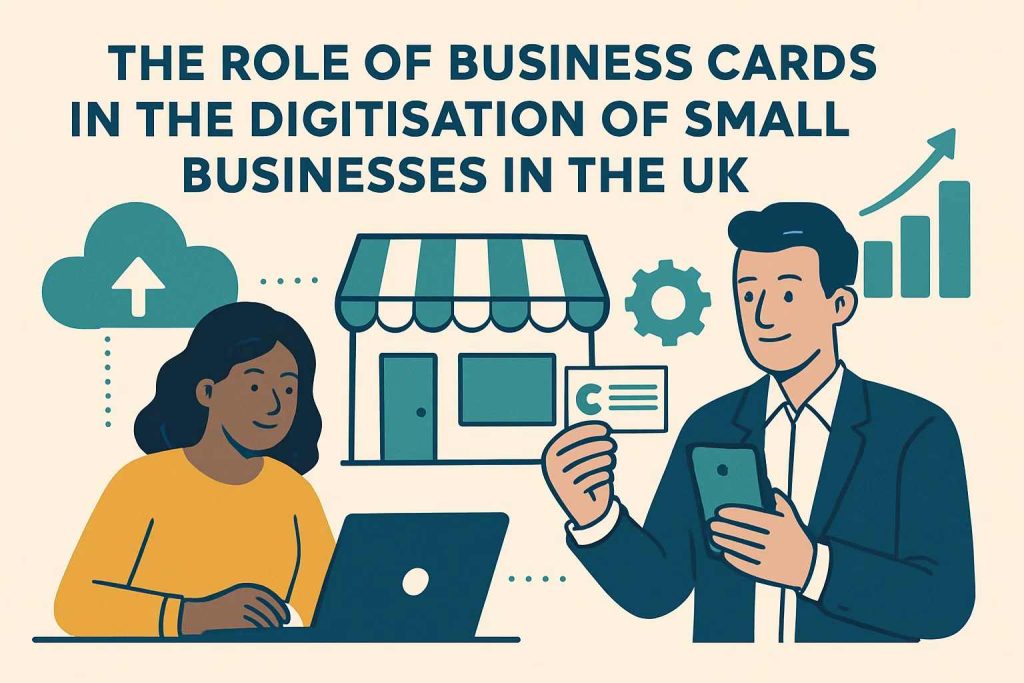In the rapidly evolving digital landscape, small businesses in the UK are seeking innovative ways to keep up with technology while maintaining personal connections. While credit cards might only bring financial transactions to mind, their influence extends further, acting as a catalyst for the digitization efforts of small enterprises.
Amidst various digital tools and strategies, these cards have a unique role, supporting the transition towards a more streamlined, tech-savvy small business environment. As more transactions and interactions shift online, the traditional business card also evolves, integrating tech-savvy elements that keep small businesses competitive and connected in a virtual space.
Transforming networking with technology

The advent of digital business cards has revolutionized the way professionals exchange information. They offer a modern twist on traditional networking by incorporating innovative features like QR codes and NFC technology. These elements allow for seamless, instant exchange of contact details with a simple tap or scan, removing the need for physical exchange and making it easier to store and organize contacts digitally.
Moreover, digital cards are eco-friendly and cost-effective, reducing the need for printing and reprinting due to changes in contact details. This transition is crucial for small businesses aiming for sustainability while staying relevant in the digital age.
Customization and personalization
Technology enables an unprecedented level of personalization in digital business cards. Small business owners can now include multimedia elements such as links to social media profiles, promotional videos, and websites straight from their digital cards.
This level of customization allows them to present their brand and values more dynamically compared to traditional paper cards. The ability to update details in real-time is another distinct advantage, ensuring all recipients have the most current information. This adaptability reflects the agility necessary for small businesses to thrive in a fast-paced digital economy.
Enhancing small business operations
Digitization isn’t limited to networking—it’s also about streamlining internal processes. By incorporating credit card-like features, such as secure authentication and data storage, into digital business solutions, small businesses can enhance security and efficiency.
This integration allows for better tracking and management of expenses and customer interactions, particularly as more transactions are conducted online. Adopting these technologies supports the scalability of small businesses, allowing them to expand their operations without the traditional overhead associated with physical infrastructure.
Practical implementation strategies
For small businesses eager to adopt digital solutions, it’s essential to start with a clear plan. Prioritizing customer-facing applications, like digitized payment systems, can provide immediate benefits by reducing transaction times and increasing convenience for clients.
Additionally, investing in user-friendly software that integrates digital business card capabilities can improve network management. Training staff to proficiently use these technologies is critical. Offering workshops and resources ensures that everyone is comfortable and competent, allowing the business to fully leverage the benefits of digitization.
Conclusion on the power of digitization
Incorporating digital strategies, including the adoption of advanced business cards, allows small businesses in the UK to remain competitive. By integrating technology, they can streamline operations, enhance customer interactions, and reduce costs. The transition from traditional methods to digital solutions reflects a broader trend towards efficiency and sustainability in the small business sector.
As small businesses navigate the challenges of the digital age, embracing technologies that simplify and enhance operations will be key to their success. In doing so, they can maintain the personal touch required for meaningful connections while fully participating in the digital economy.




